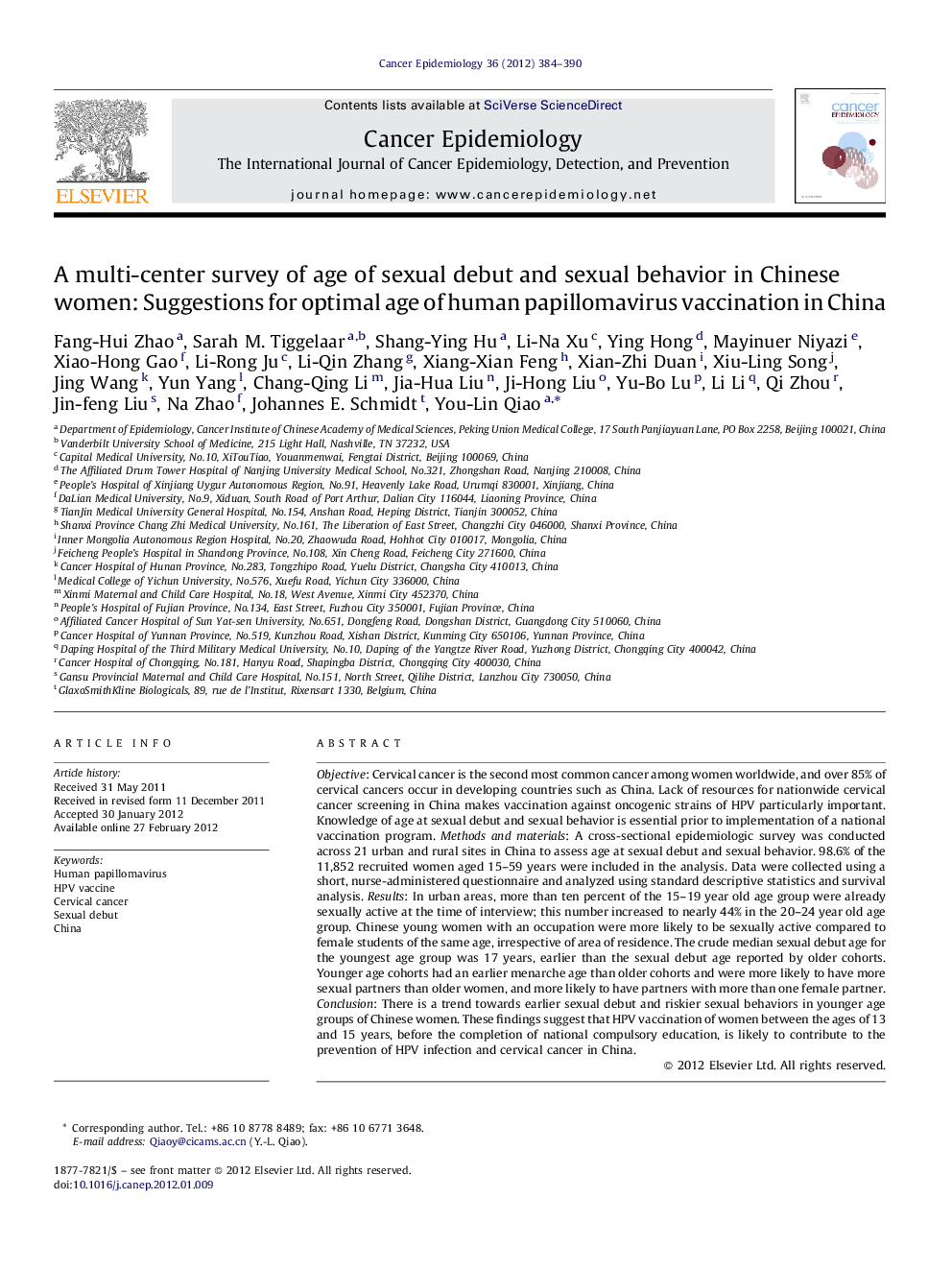| Article ID | Journal | Published Year | Pages | File Type |
|---|---|---|---|---|
| 10897501 | Cancer Epidemiology | 2012 | 7 Pages |
Abstract
Objective: Cervical cancer is the second most common cancer among women worldwide, and over 85% of cervical cancers occur in developing countries such as China. Lack of resources for nationwide cervical cancer screening in China makes vaccination against oncogenic strains of HPV particularly important. Knowledge of age at sexual debut and sexual behavior is essential prior to implementation of a national vaccination program. Methods and materials: A cross-sectional epidemiologic survey was conducted across 21 urban and rural sites in China to assess age at sexual debut and sexual behavior. 98.6% of the 11,852 recruited women aged 15-59 years were included in the analysis. Data were collected using a short, nurse-administered questionnaire and analyzed using standard descriptive statistics and survival analysis. Results: In urban areas, more than ten percent of the 15-19 year old age group were already sexually active at the time of interview; this number increased to nearly 44% in the 20-24 year old age group. Chinese young women with an occupation were more likely to be sexually active compared to female students of the same age, irrespective of area of residence. The crude median sexual debut age for the youngest age group was 17 years, earlier than the sexual debut age reported by older cohorts. Younger age cohorts had an earlier menarche age than older cohorts and were more likely to have more sexual partners than older women, and more likely to have partners with more than one female partner. Conclusion: There is a trend towards earlier sexual debut and riskier sexual behaviors in younger age groups of Chinese women. These findings suggest that HPV vaccination of women between the ages of 13 and 15 years, before the completion of national compulsory education, is likely to contribute to the prevention of HPV infection and cervical cancer in China.
Related Topics
Life Sciences
Biochemistry, Genetics and Molecular Biology
Cancer Research
Authors
Fang-Hui Zhao, Sarah M. Tiggelaar, Shang-Ying Hu, Li-Na Xu, Ying Hong, Mayinuer Niyazi, Xiao-Hong Gao, Li-Rong Ju, Li-Qin Zhang, Xiang-Xian Feng, Xian-Zhi Duan, Xiu-Ling Song, Jing Wang, Yun Yang, Chang-Qing Li, Jia-Hua Liu, Ji-Hong Liu, Yu-Bo Lu,
